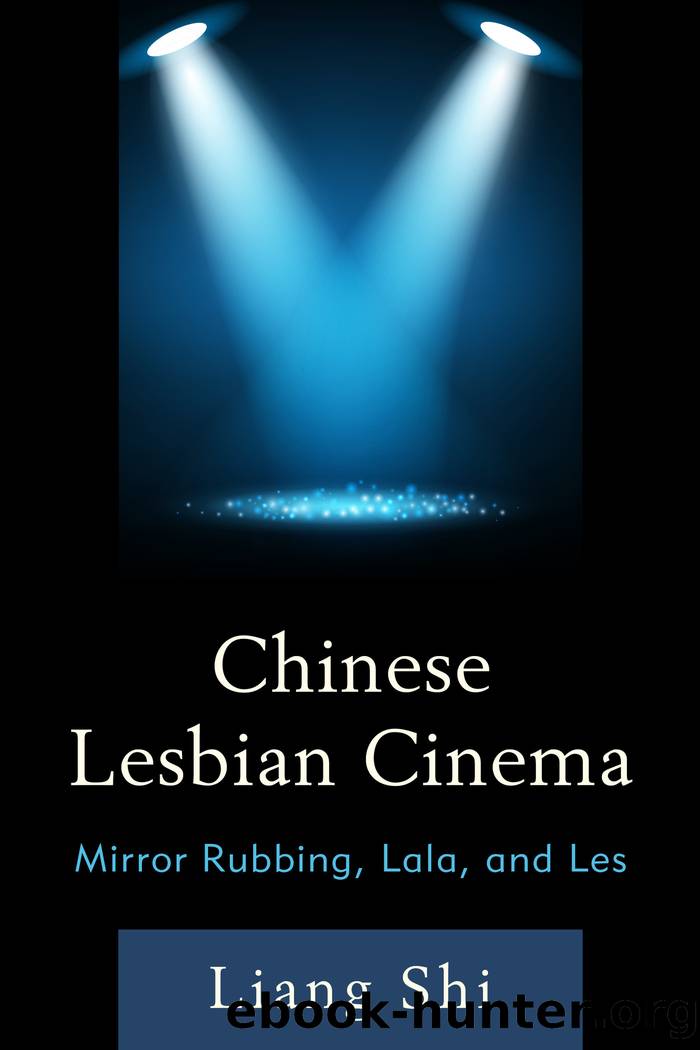Chinese Lesbian Cinema by Shi Liang;

Author:Shi, Liang;
Language: eng
Format: epub
Tags: undefined
Publisher: Lexington Books
Published: 2012-12-15T00:00:00+00:00
Nüâergu 女å¿è°· (Behind the Wall of Shame), 1995
Nüâergu 女å¿è°· (Behind the Wall of Shame, 1995)[11] is directed by Xie Jin è°¢æ, who is arguably the best known, if not the most important, filmmaker in the Peopleâs Republic of China before the rise of the Fifth Generation directors. Quite a few of his works, such as Wutai jiemei èå°å§å¦¹ (Stage Sisters, 1965) and Furongzhen èèé (Hibiscus Town, 1986), have been deemed classics of mainland cinema. Nüâergu was produced in the later years of Xie Jinâs career when a new generation of directors, represented by Chen Kaige and Zhang Yimo, had emerged to become a dominant force in the field. Compared with his earlier works, Nüâergu has received hardly any critical attention. In a sense, however, Nüâergu represents a historical landmark because it is the first mainland film that has characters that may be considered lesbians. Just for that reason alone, Nüâergu should not be ignored. It is disappointing, therefore, that the film has not drawn interest from scholars and critics of gender studies.
My analysis focuses on how female same-sex relations are represented in the film. I conclude that this representation is superficial and stereotypical. In the eye of the public, female same-sex relations are perceived as abnormal and the other, and are, consequently, demonized. Culturally and historically, this representation is inspired by both indigenous and foreign traditions. I argue that in Nüâergu, sexual desire and relationships between women are conceptualized as circumstantial, and the women characters involved in such relations are shown to be driven by social rather than sexual forces. They are, therefore, not lesbians.
Nüâergu is about a group of inmates in a womenâs prison. The film portrays these female convicts as victims of their social environment which forces them to commit felonies. The story narrates their struggle with personal tragedies and celebrates the survival of humanity in a most hostile environment. In a cell occupied by seven inmates, Xiao Nan and Xia Qiuzi are involved in a female same-sex relationship that is openly practiced among the prisoners but is likely kept hidden from the guards.
The film defines this female same-sex relationship in the following ways. Verbally Xia Qiuzi refers to Xiao Nan as âmy loverâ æçæ 人. In a scene where the two girls poke fun at a female guard for the lack of romance in her life, Xiao Nan describes her own condition as better off because unlike the guard she âhas someone [Xia] who loves and cares for herâ æ人ç±çç¼ç. In terms of physical intimacy, Xiao and Xia kiss and cuddle in front of other inmates. Unlike Dalu, however, the intimacy between Xiao and Xia signifies the affection of lovers. There is no indication that this intimacy reaches the level of sexual intercourse. In addition, their relationship is clearly characterized by one partner playing the role of the initiator and the other the passive recipient. Xiao Nan is the tallest of the seven inmates, sports a masculine short hair, and wears menâs clothes. She talks like a gangster
Download
This site does not store any files on its server. We only index and link to content provided by other sites. Please contact the content providers to delete copyright contents if any and email us, we'll remove relevant links or contents immediately.
Kathy Andrews Collection by Kathy Andrews(11333)
The remains of the day by Kazuo Ishiguro(8407)
Paper Towns by Green John(4805)
Spare by Prince Harry The Duke of Sussex(4799)
Industrial Automation from Scratch: A hands-on guide to using sensors, actuators, PLCs, HMIs, and SCADA to automate industrial processes by Olushola Akande(4624)
The Body: A Guide for Occupants by Bill Bryson(4590)
Be in a Treehouse by Pete Nelson(3652)
Machine Learning at Scale with H2O by Gregory Keys | David Whiting(3651)
Harry Potter and the Goblet Of Fire by J.K. Rowling(3612)
Never by Ken Follett(3540)
Goodbye Paradise(3456)
The Remains of the Day by Kazuo Ishiguro(3143)
Into Thin Air by Jon Krakauer(3132)
The Cellar by Natasha Preston(3078)
The Genius of Japanese Carpentry by Azby Brown(3041)
Fairy Tale by Stephen King(2960)
120 Days of Sodom by Marquis de Sade(2943)
Drawing Shortcuts: Developing Quick Drawing Skills Using Today's Technology by Leggitt Jim(2943)
The Man Who Died Twice by Richard Osman(2815)
